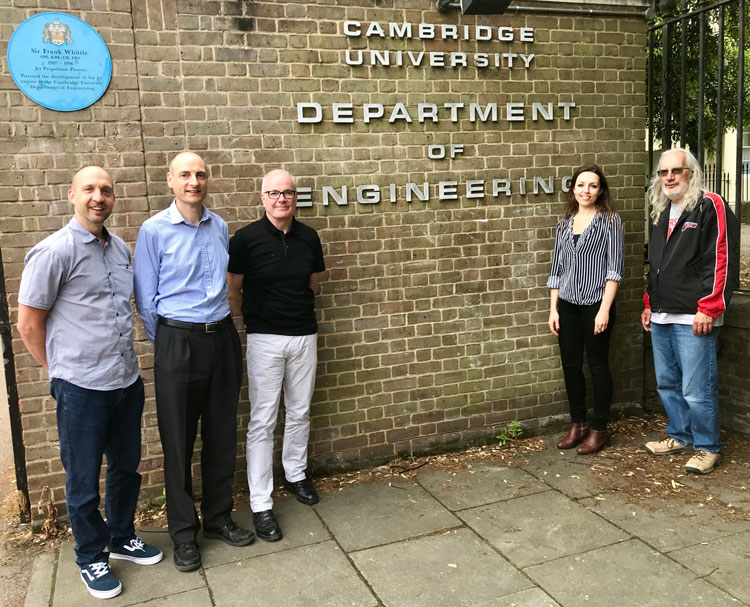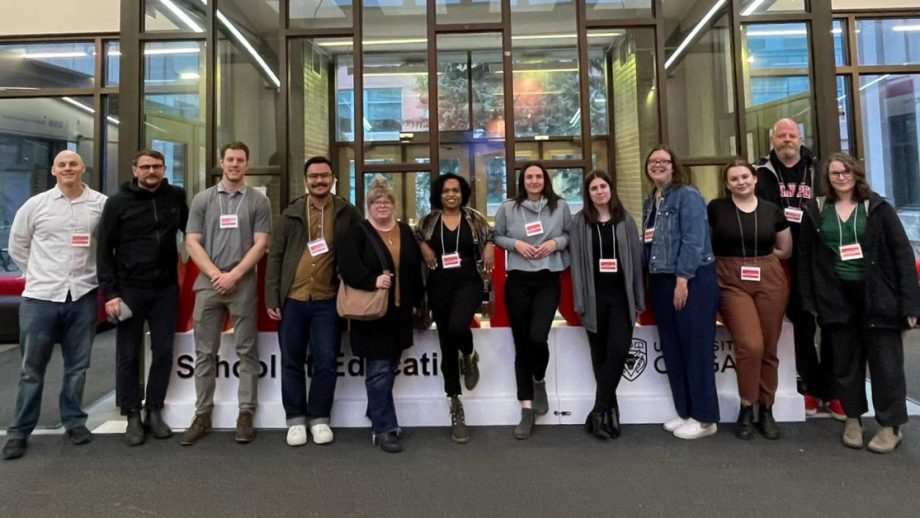Pilot program the first step in UWinnipeg-University of Cambridge partnership
A new partnership between The University of Winnipeg and the University of Cambridge is letting high school students step into the shoes of the elderly to help them design a more accessible world.
Last month, students in Grades 9-12 at Sisler High School became the first students in Canada to take part in Designing our Tomorrow (DOT), a program developed by researchers at the University of Cambridge that challenges young people to design solutions to societal issues such as accessibility or health care. Students go through a process called “empathic engineering,” which involves understanding an issue through first-hand experience and then applying STEAM (science, technology, engineering, arts, and mathematics) methods to solve it.
“We don’t realize the creative and divergent thinking in a teenager’s mind,” said Ken Reimer, project lead and professor in UWinnipeg’s Faculty of Education. “It’s great to teach students how to do something, but to teach them the skills to let them make something better is far more impactful both on the student and society.”
Reimer, a former vice-principal at Sisler, first learned about the program while giving a presentation last December in Cambridge. Believing the concept could work in Canada, he teamed up with Sisler’s faculty, including Jamie Leduc, head of the school’s Interactive Digital Media (IDM) program.
“The reason why Sisler IDM students are involved in this workshop is the fact that they have been practicing STEAM education for the last three to four years,” said Leduc. “STEM is a fantastic way of redesigning products, but adding the art into it takes their learning to the next level.”
For their workshop, Sisler students wore special glasses and gloves designed by the DOT team to simulate the effects of glaucoma and arthritis. After attempting to perform tasks such as reading a medicine bottle or refilling salt and pepper shakers, students were then tasked with designing and prototyping more accessible versions of the products.
“When a student hands in an assignment, that work is usually only seen by one teacher. Students want an audience larger than one teacher — they want an audience to show the world,” said Reimer.

From left: Ken Reimer, Ian Hosking (University of Cambridge, Engineering), Bill Nicholl (University of Cambridge, Education), Melanie Smith, Ken McCluskey (UWinnipeg Dean of Education) following the formation of DOT Canada on May 31, 2018 at the University of Cambridge. Photo supplied.
Sisler students now have an audience as far away as the U.K. Melanie Smith, operations manager with the DOT team at the University of Cambridge, said her team was impressed by the students’ ingenuity.
“The entrepreneurial and visionary attitudes from all involved showed that anything is possible and that resonance can be found in the most unexpected places,” said Smith.
It’s also the start of more collaboration between the two universities, which formally reached an agreement last month to form DOT Canada. The partnership could also see education programming like UWinnipeg’s popular Lost Prizes series brought over to England.
“The University of Winnipeg has opened our eyes to notable pioneers in the fields of inclusive, gifted, and disadvantaged education whose impact is central to their society,” said Smith. “This remarkable synergy, with the core principles of Designing our Tomorrow, is a huge driver for us to continue our work together in transforming education to allow students to be effective and creative problem solvers.”
Reimer is also reaching out to more school divisions, as well as the medical sector, to explore more applications for the program. He’s already brought on board the Mayo Clinic in the U.S., which worked with the team throughout the pilot.
“During my time working on the DOT project with The University of Winnipeg, Sisler, and Cambridge I have witnessed truly exceptional progress in advancing how we work with students in an educational format while solving complex problems impacting our society each and every day,” said Eric Pool, senior project manager at the Mayo Clinic. “I believe this project is paving the way in educational reform and I am proud to be a part of it.”
Learn more about Designing our Tomorrow at the University of Cambridge.




